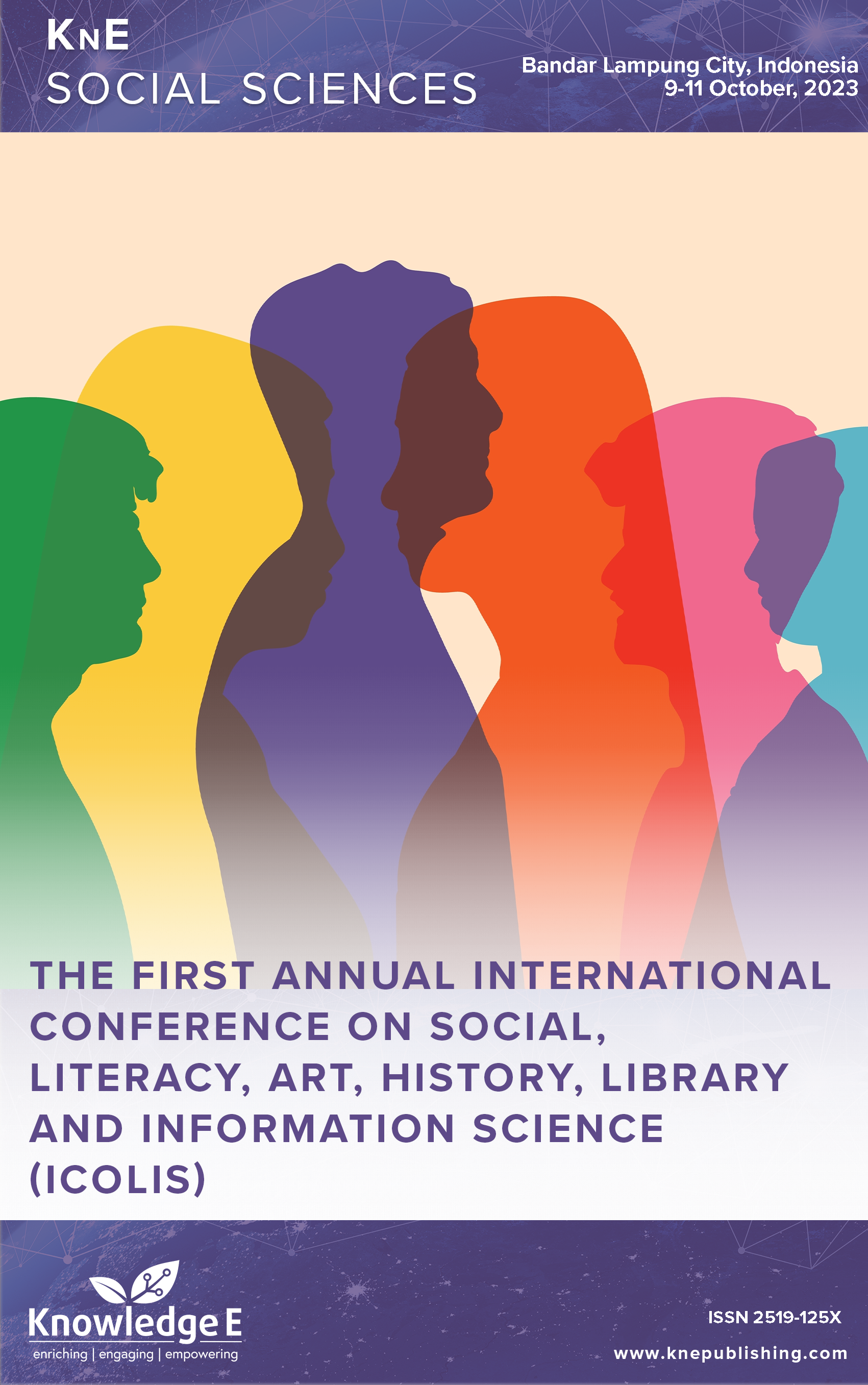Literacy Building Plan Digital Information Literacy Ahead Of Election 2024, To Counteract Desinformation Through Instagram
DOI:
https://doi.org/10.18502/kss.v9i12.15868Abstract
In accordance with the provisions of Article 22E of the Constitution of the Republic of Indonesia Year 1945, Indonesia held a democracy to elect a leader or president, commonly called an election. In its implementation, the 2019 election was very controversial due to the many hoax news circulating. It was found from several sources that this hoax is very extreme and has the process of running the people’s Democratic Party both from the elements of dropping the good name of a person and institution, as well as news provocation against the election organizing body itself. Objective of this study is to build digital information literacy ahead of the 2024 general election through Instagram. The research method used in this research is development research with a 4D research model (Define, Design, Development, Disseminate). The results of this research are 1) Penabuta-24 as an Instagram platform to build digital information literacy to explain the 2024 general election and counteract disinformation; 2) The content presented in Penabuta-24 are digital information literacy campaigns, periodic educational content, live sessions or webinars, collaboration with trusted news accounts, contests or competitions, using hashtags and labels, monitoring and reports, collaboration with government and social organizations, and self-assessment and evaluation.
Keywords: Penabuta-24, general election, hoax, social media
References
Jurdi F. Pengantar Hukum Pemilihan Umum. Jakarta: Kencana; 2018.
Nasef I, Huda N. Penataan Demokrasi dan Pemilu di Indonesia Pasca. Jakarta: Kencan; 2017.
Annur CM. “Pengguna Internet di Indonesia Tembus 213 Juta Orang hingga awal 2023,” Databoks, 2023. https://databoks.katadata.co.id/datapublish/2023/09/20/pengguna-internetdi- indonesia-tembus-213-juta-orang-hingga-awal-2023#:~:text=Didukung Oleh&text=Menurut laporan We Are Social,orang pada awal tahun ini.
Siregar AE, Rahayu P. Rianto, and W. M. Adiputra, “Menakar Independensi dan Netralitas Jurnalisme dan Media di Indonesia,”. J. Dewan Pers. 2014;3(9).
Sugiyono MP. Kualitatif, dan R&D. Bandung: Alfabeta; 2017.
Hukum LJ. Penyelenggaraan Pemilihan Kepala Daerah Secara Langsung dan Demokratis Sebagai Bentuk Perwujudan Hak Asasi Politik Masyarakat di Indonesia. Legalitas. 2020;12(1):107–36. DOI: https://doi.org/10.33087/legalitas.v12i1.197
Radjak I. “Analisis Yuridis Terhadap Netralitas Pers Pada Media Penyiaran Di Indonesia,” Lex Priv., vol. 5, no. 4, pp. 153–161, 2017.
A. H. Sholahudin et al., Hukum Pemilu di Indonesia. Aceh: Syah Kuala University Press, 2023.
Hujjah S. Balada Hoax (Trend Penyebaran Berita Bohong di Tengah Pandemi Covid- 19. Yogyakarta: Jejak Pustaka, 2022.
Imaroh Z, Hamzani AI, Aryani FD. Pertanggungjawaban Pidana Penyebaran Berita Hoax di Media Sosial. Pekalongan: Nasya Expanding Management; 2023.
Chazawi A. Tindak Pidana Pemalsuan. Jakarta: Rajagrafindo Persada; 2016.
Nurrahmi F, et al. Etika dan Bisnis dalam Jurnalisme. Aceh. Syiah Kuala University Press; 2021.
A. S. A. Asmara, “Pemidanaan Terhadap Pelaku „Hoax“ dan Kaitannya dengan Konsep Keadilan Restoratif,” Diponegoro Law J., vol. 7, no. 2, 2018.

